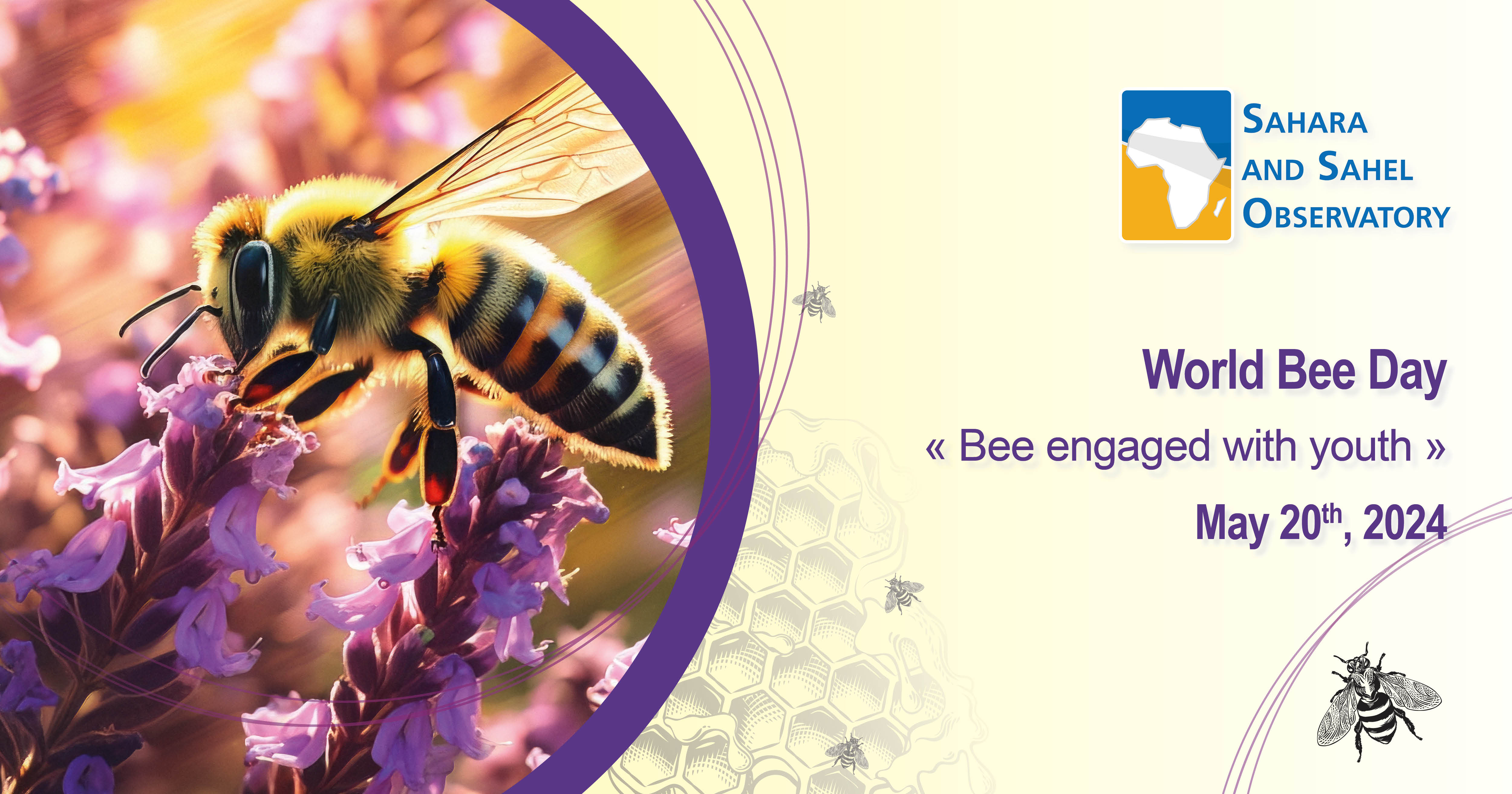World Bee Day, May 20 | « Bee engaged with youth » Bees, small yet highly important!

Ms Malak Chalbi
Agronomist
Ecosystem and Wildlife Management Specialist,
Sahara and Sahel Observatory
First things first. On our planet, there is a natural process called “Pollination” which has a major role in human food security, ecological balance and the conservation of biodiversity. This process is orchestrated by pollinating animals.
Even though there is a great deal of pollinating agents such as butterflies, beetles, flies and even vertebrates such as bats, monkeys, rodents, birds; today, on their world day, let us pay tribute to bees, the queens of all pollinators!
It seems like we are completely underestimating the importance of these small living beings. Well, believe it or not, bees are more important that you can ever imagine as they play a crucial role in the survival of ecosystems, and therefore, ours.
Whether in natural or human-managed ecosystems, pollination is a highly important process as it links wild spaces to agricultural production systems. Most species of flowering plants rely on it to produce seeds, giving rise to your pumpkin, or tomato, or coffee, or even your apple.
Is that all? Oh no. Bees are a key contributor to the reproduction of trees, and therefore to reforestation actions. They provide information on the health of ecosystems thus serving as sentinels for emerging environmental risks.
Cleaners, masons, guards, storekeepers, foragers, feeders of larvae ... and of human beings, every bee performs a true miracle at each stage of its life. If only we could seize the opportunity, these true heroines, who spare no effort for the glory of their species, could offer a prosperous future to the generations to come.
Unfortunately, there is always one fly in the ointment, these impressive creatures are under threat due to lack of crop diversification, intensive agriculture, pesticide use, habitat loss, disease and climate change.
However, modernized and sustainable beekeeping practices light up this darkness. And speaking of future generations, we could train young people and help them develop and upgrade the beekeeping sector. Educational projects and awareness programs would motivate young people to get involved and lend a hand in the pollinators’ protection efforts.
The potential of beekeeping is really under-exploited especially in Africa. This sector is an economic activity that has low environmental impact and that requires little investments. It can create income-generating activities, provide significant profits and strengthen the food and nutritional security of rural populations who largely depend on forest products for their livelihoods. In addition, bees are threatened with extinction in Europe but are doing fine in Africa thanks to the limited use of chemicals.
For this potential to be wisely explored, respectful collaboration between humans and bees needs to be established. The beehive is a “superorganism” endowed with intelligence, cohesion, communication, organization, resilience, agility and performance…Maybe, there is something in that for all of us.
Coordinated continent-wide actions to monitor pollinator declines, address pollinator information gaps, and assess the economic impact of reduced pollination services must be undertaken. You know what, maintaining a varied set of plants and encouraging fallow lands in our green spaces, promoting natural gardening practices, avoiding pesticides, fungicides or herbicides, diversifying crops and purchasing raw honey from local beekeepers are actions that can make a difference. Small and big actions must come together to preserve bees, promote more widespread pollination and improve the diversity, quality and quantity of food, which benefits human populations, wildlife and ecosystems.
Remember: small does not mean insignificant!
So next time, when you come across a bee, show respect.
